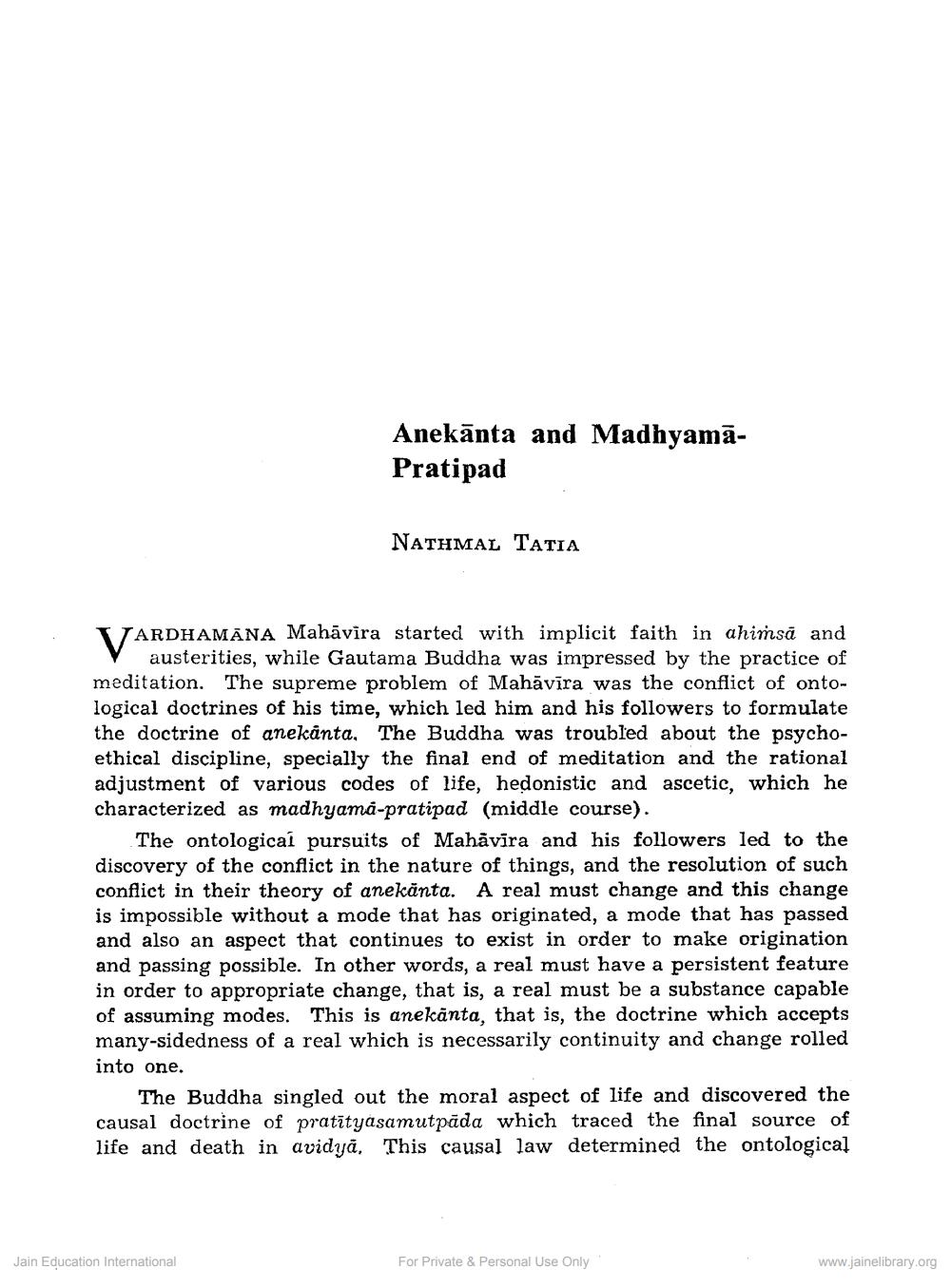Book Title: Anekanta Madhyama Pratipada Author(s): Nathmal Tatia Publisher: Z_Mahavir_Jain_Vidyalay_Suvarna_Mahotsav_Granth_Part_1_012002.pdf and Mahavir_Jain_Vidyalay_Suvarna_ View full book textPage 1
________________ Anekanta and MadhyamaPratipad NATHMAL TATIA WARDHAMANA Mahavira started with implicit faith in ahimsa and austerities, while Gautama Buddha was impressed by the practice of meditation. The supreme problem of Mahavira was the conflict of ontological doctrines of his time, which led him and his followers to formulate the doctrine of anekanta. The Buddha was troubled about the psychoethical discipline, specially the final end of meditation and the rational adjustment of various codes of life, hedonistic and ascetic, which he characterized as madhyamá-pratipad (middle course). The ontological pursuits of Mahavira and his followers led to the discovery of the conflict in the nature of things, and the resolution of such conflict in their theory of anekanta. A real must change and this change is impossible without a mode that has originated, a mode that has passed and also an aspect that continues to exist in order to make origination and passing possible. In other words, a real must have a persistent feature in order to appropriate change, that is, a real must be a substance capable of assuming modes. This is anekanta, that is, the doctrine which accepts many-sidedness of a real which is necessarily continuity and change rolled into one. Jain Education International The Buddha singled out the moral aspect of life and discovered the causal doctrine of pratitуasamutpäda which traced the final source of life and death in avidya. This causal law determined the ontological For Private & Personal Use Only www.jainelibrary.orgPage Navigation
1 2 3
